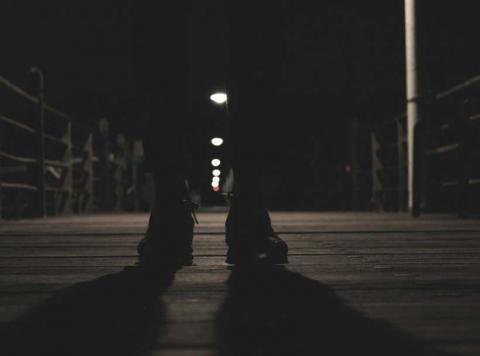
On 13 April 2023, Alkarama submitted its report to the UN Secretary-General (UNSG) regarding two cases of reprisals in Tunisia and Saudi Arabia.
Under resolution 12/2, the Secretary-General of the United Nations submits to the Human Rights Council an annual report compiling information received on acts of reprisals for cooperation with the United Nations in the field of human rights. The report highlights the situation in countries where cooperation with the United Nations triggers retaliatory and intimidating measures.
In its contribution to the annual report on reprisals, Alkarama submitted information on two cases of particularly worrying reprisals against persons who had filed complaints with United Nations mechanisms.
The case of Bechir AKREMI (Tunisia)
As public prosecutor at the Tunis court, an important court with exclusive national jurisdiction in the fight against financial corruption and the fight against terrorism, Mr. Akremi has had to deal with and investigate the main cases of corruption and terrorism that have marked the country's recent judicial history. During his duties as first investigating judge at the Tunis Court of First Instance, Mr. Akremi was responsible for investigating important criminal cases.
The decisions he has taken in some of the cases he has had to investigate have led to strong hostilities towards him from some senior security officials, police unions, some media and even members of the executive.
However, despite the pressures he has suffered, Mr. Akremi has always tried to carry out his duties independently and impartially by refusing to politicize his mission as a magistrate and to comply with the injunctions and intimidation of the executive and certain political actors.
During the years 2021 and 2022, Mr. Akremi was abusively suspended from his functions by the Superior Council of Magistracy (CSM). Although the High Administrative Court found that these decisions were unlawful for abuse of power, they were never enforced in violation of legal provisions.
Mandated by Mr. Akremi, Alkarama and the Association of Victims of Torture in Tunisia (AVTT) submitted this situation to the UN Special Rapporteur on the independence of judges and lawyers, highlighting the interference of the executive in the judiciary as well as the refusal of the authorities to execute the judgments of the High Administrative Court.
On 12 February 2023, five days after Mr. Akremi's case was submitted to the UN, he was arrested at his home. Obviously, since the arrest of the magistrate is the direct consequence of his complaint to the UN special procedures, Alkarama indicated in its report that the arbitrary deprivation of liberty of Mr. Akremi clearly constitutes retaliation for his cooperation with the United Nations.
The case of Safar bin Abdurrahman AL HAWALI (Saudi Arabia)
A prominent academic and religious figure, Mr. Safar bin Abdurrahman AL HAWALI has been arbitrarily detained since 12 July 2018 for publishing a book criticizing Crown Prince Mohammed bin Salman's international policy. He was held incommunicado for two months before his family learned that he was being held at the headquarters of the General Directorate of Investigations (Mabahiths).
After one of his family members abroad reported to the press and asked Alkarama to submit his case to UN special procedures, his sons and brother were arrested by the Mabahiths in retaliation.
Due to severe deficiencies affecting his communication and mobility abilities, Alkarama submitted a communication to the UN Committee on the Rights of Persons with Disabilities on 12 October 2020, which urged the Saudi authorities to release him. In response, they took further retaliatory measures against Mr. Al Hawali and several members of his family.
Thus, on 7 June 2022, his sons, Abdul Rahman, AbdAllah and AbdulRahim were sentenced to seven and six years in prison respectively on the pretext of having publicly denounced the arrest of their father. Saadallah Al Hawali, his brother, was also sentenced to four years in prison.
Having appealed this particularly harsh decision, the four men appeared again before the court of appeal on 15 February 2023 where, during a closed hearing, the court increased their prison sentences by an additional ten years each to punish them for challenging the original judgment.
For his part, Mr. Al Hawali has seen his conditions of detention in solitary confinement worsen despite his age and his state of health, which requires appropriate medical care. Since then, his detained sons have gone on hunger strike to protest the unjust sentences handed down against them in retaliation.
Alkarama has therefore demonstrated that the treatment suffered by Mr. Al Hawali's family members constitutes retaliation for having also brought their case before the United Nations human rights mechanisms.
